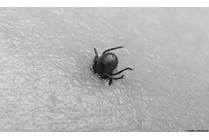Search Results
Viewing: 871-880 of 1460 | All

Blog
Physiological Stress Response: It’s Not All in Your Head
Often the clinician may explain that your child’s symptoms are the result of stress, which can feel like you are being told “it’s all in their head.” It is important to know that it is not all in your child’s head.

Blog
Ticks and Illness: Lyme Disease and Powassan Virus
Tick-bite prevention is key. Although anyone can get tick-borne illnesses, people who spend a lot of time outdoors in certain regions are at particular risk.

Blog
Tonsillectomy and Adenoidectomy Recovery Tips
Here are some things to look out for and steps to take to help your child recover from adenoid and tonsil surgery at Nationwide Children's Hospital.
Patellofemoral Dislocation
The patella (kneecap) sits in the groove at the end of the femur. Sometimes, it moves too far to the side of the knee and slides out of the groove. This is called a dislocation.

Condition
High-Grade Gliomas
High-grade gliomas are fast-growing cancers that form in the brain or spinal cord. Surgery, radiation, and targeted therapies can help. High-grade gliomas are more aggressive and can grow quickly. They are the second most common type of malignant brain tumor in children.

Condition
Dehydration
There are many reasons why children can get dried out or dehydrated. A child can lose too much liquid from the body from diarrhea, vomiting or fever. If the child has mouth sores or a bellyache, they may refuse to drink enough. Babies and younger children are at greater risk.

Condition
Hip Pointer (Iliac Crest Contusion)
A hip pointer is a bruise to the bone on the side of the hip called the iliac crest. It is usually from a direct hit to the hip. Bruises cause bleeding from small blood vessels that split, allowing blood to leak into the muscles, tendons, or other soft tissues.

Condition
Tonsillitis
Tonsillitis refers to inflammation or infection of the tonsils. Treatment of tonsillitis typically requires a course of antibiotics.

Specialty
Pancreas Care
Our center provides comprehensive multidisciplinary care for patients suffering from diseases of the pancreas. Our multidisciplinary team focuses on treating the patient as a whole to achieve the best possible outcomes and quality of life.

Blog
Baby Registry Series: Diaper Changes & Container Safety
Babies don’t need anything fancy, but there are a few things to keep in mind to prepare your home for safe diaper changes and playtime.
